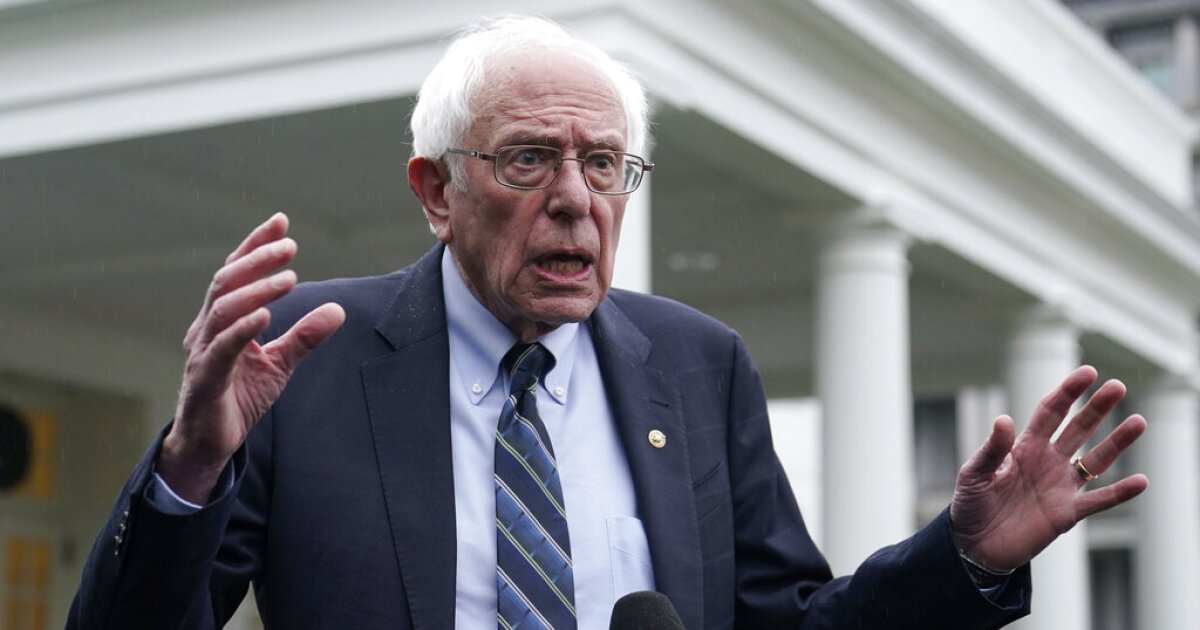

Pharmaceutical lobbyists are bracing in the crosshairs of the Health, Education, Labor and Pensions Committee now that it is chaired by “Medicare for All” proponent Sen. Bernie Sanders (I-VT), who has long taken an antagonistic view toward the industry.
The Vermont independent has already hinted he plans to take on the “greed of the pharmaceutical industry,” which could involve calling in drug company executives to testify, leaving some lobbyists apprehensive that it won’t be business as usual, making it harder to push their legislative priorities.
HOUSE PASSES GOP BILL TO END COVID-19 VACCINE MANDATE FOR HEALTHCARE WORKERS
“I think Sen. Sanders — if he feels very passionate that he’s not getting the truthful responses that he’s looking for — will use all the tools in his chest to get those answers,” said Michael Strazzella, who heads Buchanan Ingersoll & Rooney’s federal government relations practice.
When asked about the possibility of calling executives to testify at hearings on drug pricing, Sanders told Axios that they are “working on a strategy right now that will be very aggressive.”
Pharmaceutical lobbyists say it’s still too early to judge how Sanders will use his committee’s oversight authority, which extends to drug pricing and student and medical debt, though they deduce that it wouldn’t be unexpected if he calls in drug company executives.
Pharmaceutical Research and Manufacturers of America spokesman Brian Newell suggested that the committee should look at other actors in the drug supply chain, including pharmacy benefit managers or PBMs, third-party administrators that function as intermediaries between insurance companies and consumers, which the industry blames for high drug costs.
“If we’re going to bend the curve in healthcare costs and make medicines more affordable for patients, we can’t ignore the real drivers of healthcare spending or middlemen who are shifting costs onto people at the pharmacy,” Newell told the Washington Examiner in a statement. “We look forward to working with members on both sides of the aisle on solutions.”
Sanders is expected to take an early focus on the pharmaceutical industry coming off the heels of last year’s passage of the Democrat-led Inflation Reduction Act that is aimed at lowering drug prices, though he will likely also look at minimum wage, student debt, and childcare.
While Sanders has big ideas for healthcare reform, he has slim chances of getting legislation signed into law with a Republican-controlled House.
He isn’t oblivious to the difficulties he faces moving policy forward, nor is it a new challenge for him. Sanders told Politico in December that he doesn’t plan to squander all his time as chairman “having hearings which I know will not result in any concrete legislation” and intends to look for areas of bipartisan support, but some Republican lawmakers have been leery.
“Sen. Sanders is not one to go along with the status quo. He feels very passionately about several issues, and he will, he’s not shy in letting his opinions be known about various issues,” said Strazzella. “And for some people, they’re going to gravitate towards that. And there are people in this town who are going to shy away from [it].”
CLICK HERE TO READ MORE FROM THE WASHINGTON EXAMINER
His Republican counterpart on the committee, ranking member Sen. Bill Cassidy (R-LA), has a history of working across the aisle on certain issues yet the two have little track record together. Cassidy hasn’t outlined what he will push for on the committee, but has previously made statements about looking at surprise medical billing, and drug pricing, among other healthcare issues.
Sanders’s office did not respond to the Washington Examiner’s request for comment.







